BODYBUILDING & FIBER INTAKE: HOW MUCH FIBER SHOULD YOU EAT?
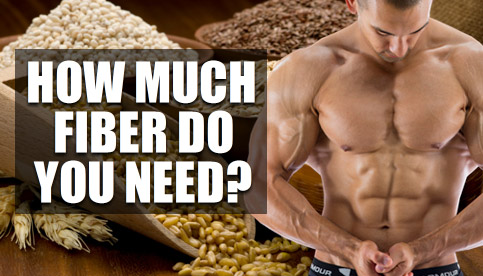
It may not be the most exciting topic in the world, but proper fiber intake is a highly important yet often overlooked aspect of nutrition when it comes to optimizing overall health and body composition.
In this post I’ll be breaking it all down into simple terms by explaining what fiber is, why you need it, how much to eat, and which foods are the best sources to meet your daily fiber intake.
Let’s go over it…
What Is Fiber?
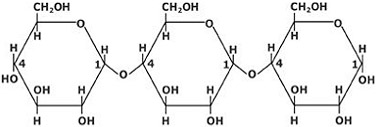
Fiber is generally classified as a type of carbohydrate and is derived from plant sources. This is often a point of argument as there is no universal agreement on exactly how fiber should be classified, however, that’s not important for the purposes of this article.
In any case, fiber is usually broken down into two main categories…
Soluble Fiber: Although many people think of fiber as being indigestible, this form of fiber is actually broken down by bacteria in the large intestine and then re-absorbed by the body in the form of short-chain fatty acids.
Insoluble Fiber: This form of fiber does not dissolve in liquid and passes through the body un-absorbed. It binds water as it moves through the digestive system, adding bulk to the stool and helping to move food through the digestive tract more easily.
What Are The Benefits Of Fiber?
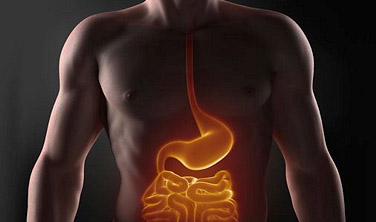
Although fiber itself is not an essential nutrient (meaning you can survive without it), it does perform a variety of important jobs in the body.
Without going into unnecessary detail here, consuming adequate fiber each day provides the following benefits…
- Normalizes bowel movements and bowel health. Fiber increases the weight and softness of your stool, promoting faster and easier bowel movements. Not only does this decrease the chances of constipation, but it also lowers the risk of colon disease.
- Lowers blood cholesterol levels. A diet rich in fiber binds LDL cholesterol and bile acids, allowing them to be excreted by the body for improved blood lipid health. Fiber also improves heart health by lowering blood pressure.
- Improves blood sugar control. By slowing down the rate of gastric emptying (the rate at which food is transported out of the stomach and into the small intestine) and impairing carbohydrate digestion, adequate intake of soluble fiber helps to stabilize blood sugar levels for steadier energy and appetite as opposed to more rapid up and down spikes.
- Promotes fullness/satiety. When it comes specifically to fiber and bodybuilding, those on a lower calorie cutting diet will benefit from its effects on reducing appetite and helping you to feel full for longer periods of time. Many fiber-rich foods are high in bulk but low in energy density, allowing you to eat a higher amount of them without going overboard on total calories. Fiber’s effects on slowing gastric emptying and stabilizing blood sugar also contribute to this.
- Promotes a variety of other health benefits. Some other potential but lesser known benefits of fiber include improving skin health, lowering the risk of kidney stones, and reducing the risk of various cancers.
How Much Fiber Should You Eat Per Day?
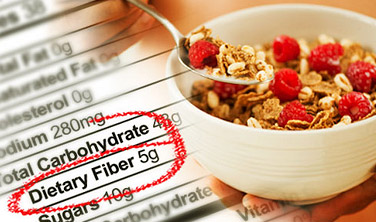
The average fiber intake in the US for adults currently lands around 15 grams per day, which is quite a bit below the ideal amount needed for optimal health.
The guideline given by The Institute Of Medicine and the figure that I personally recommend is to consume about 14 grams of fiber for every 1000 calories eaten.
Depending on your daily calorie consumption, that would put you at the following fiber intakes:
1500 calories = 21g fiber
2000 calories = 28g fiber
2500 calories = 35g fiber
3000 calories = 42g fiber
3500 calories = 49g fiber
4000 calories = 56g fiber
The minimum amount you should aim for would be 20 grams per day, and in most cases you should avoid going much above 60 grams unless you have a very high carbohydrate intake exceeding 500 grams per day.
Just because some fiber is good doesn’t necessarily mean that more is better. Going too high can actually produce negative side effects such as malabsorption of certain nutrients, bloating, gas, and constipation.
Don’t worry about tracking your intake of each specific type of fiber and as that will simply be an unnecessary over-complication. Just focus on the total grams of fiber eaten per day and aim to roughly meet the guidelines given above.
Also, if you’ve been eating a fairly low fiber diet up until now, make sure to increase your intake at a gradual pace rather than all at once.
Your body requires some time to adapt to large increases in fiber consumption, and raising your levels too quickly can very quickly lead to digestive issues such as gas and bloating (for more on bloating, check out my article on how to reduce water retention).
What Are Some Good Sources of Fiber?
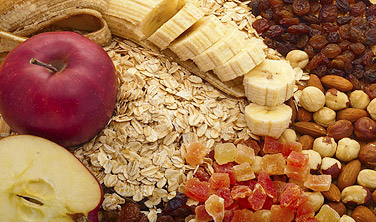
There are a ton of different options that you can choose from to meet your daily fiber needs, but here is a list of particularly high fiber foods to give you some ideas…
Whole Gains: Barley, bran, rice, buckwheat, millet, oatmeal, popcorn, whole grain bread, whole wheat pasta, amaranth, rye.
Fruits: Apples, bananas, oranges, berries, avocado, pears, peaches, prunes, dates, cherries, figs, coconut, mango.
Vegetables: Carrots, beets, peas, potatoes, sweet potatoes, Brussels sprouts, broccoli, spinach, artichokes, cauliflower, asparagus, turnips, parsnips, squash, corn, kale, cabbage.
Legumes, nuts and seeds: Beans (white, kidney, garbanzo, black, lima, navy, pinto), split peas, lentils, quinoa, edamame, nuts (almonds, pistachio, cashews, peanuts, walnuts, Brazil nuts), seeds (sunflower, pumpkin, sesame, chia, flax).
If for some reason you’re having a particularly hard time meeting your fiber needs for the day, fiber supplements can sometimes be used to bump your totals up a bit.
For example, guar gum is often used or this purpose (you can mix it into protein shakes or yogurts for added thickness), or psyllium husks in pill or powder form are another option.
However, I’d suggest aiming to meet your fiber needs through whole foods as best you can first before considering supplementation as it should be fairly easy to do so with a few simple additions/substitutions here and there.
The Bottom Line On Fiber And Bodybuilding

Although fiber itself may not have a significant direct impact on your bottom line rate of muscle growth or fat loss, it’s still a highly important part of your nutrition plan that shouldn’t be ignored.
Fiber is responsible for a wide variety of health benefits in the body, and the research is fairly clear that those who consume adequate fiber each day are more likely to live a longer, healthier life.
Bodybuilding shouldn’t be a pursuit based solely on improving your appearance, but also on maximizing your health and longevity as well.
If you found this article helpful, make sure to sign up for your FREE custom fitness plan below...




